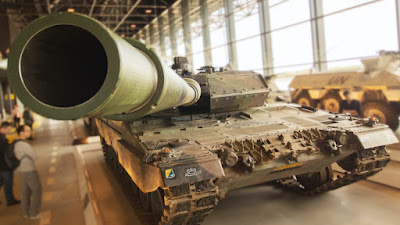The Russian-Ukraine Conflict: Unveiling Russia's Ongoing War in Ukraine
The Russian-Ukraine conflict has been a prominent and complex issue that has captured global attention since its inception. While Russia denies waging war in Ukraine, the evidence suggests otherwise. This article will delve into the roots of the conflict, examine the motivations behind Russia's involvement, and present a comprehensive analysis of Russia's ongoing military actions in Ukraine.
The Historical Context
The roots of the conflict can be
traced back to the dissolution of the Soviet Union in 1991 when Ukraine gained
independence. Tensions arose as Ukraine sought to establish its identity and
align itself with the West, leading to strained relations with Russia. The
turning point occurred in 2014 when Russia annexed Crimea, a strategic
peninsula previously under Ukrainian control. This move was met with
international condemnation, as it violated Ukraine's sovereignty and
territorial integrity.
Motivations Behind Russia's
Involvement
Russia's motivations in the conflict are
multi-faceted. Geopolitically, Ukraine holds significant strategic importance
for Russia due to its access to the Black Sea and its proximity to NATO
countries. Maintaining influence in Ukraine ensures a buffer zone between
Russia and the West, preventing potential encroachment on its borders.
Furthermore, Russia perceives the
expansion of Western influence into former Soviet territories, including
Ukraine, as a threat to its sphere of influence. Moscow fears that Ukraine's
alignment with the West would weaken Russia's economic and military leverage in
the region.
Russia's Ongoing Military Actions (300
words): Despite Russia's official denial of involvement, evidence clearly
indicates its military intervention in Ukraine. Russia has provided both covert
and overt support to separatist groups in eastern Ukraine, including the supply
of weapons, equipment, and even the deployment of its own troops. Multiple
ceasefire agreements have been reached, but they have been repeatedly violated
by both sides, with Russia often accused of instigating the violence.
Russia's tactics include the use of
hybrid warfare, combining conventional military tactics with cyber-attacks,
disinformation campaigns, and propaganda. These strategies aim to destabilize
Ukraine internally and manipulate public opinion both domestically and
internationally.
The human cost of the conflict has
been devastating. Thousands have lost their lives, and millions have been
displaced. The conflict has also caused significant damage to Ukraine's
infrastructure and economy.
International Response and Implications :
The international community, including
the United States, the European Union, and NATO, has condemned Russia's actions
and imposed economic sanctions in response. These measures have sought to
pressure Russia into adhering to international norms and respecting Ukraine's
sovereignty. However, they have not succeeded in ending the conflict entirely.
The conflict in Ukraine has broader
implications for regional security and global stability. It has underscored the
reemergence of geopolitical tensions between Russia and the West, challenging
the post-Cold War order. The conflict has also raised concerns about the
effectiveness of international institutions in resolving such disputes and
preventing future conflicts.
Conclusion
: While Russia officially denies waging war in Ukraine, the evidence speaks
otherwise. The conflict is rooted in historical tensions and Russia's desire to
maintain influence in its neighboring country. Russia's ongoing military
actions in Ukraine, coupled with hybrid warfare tactics, have created a
humanitarian crisis and regional instability. The international community's
response has been largely united in condemnation, but a resolution to the
conflict remains elusive. Efforts must continue to seek a peaceful solution
that upholds Ukraine's sovereignty and brings an end to the suffering of its
people.









0 Comments